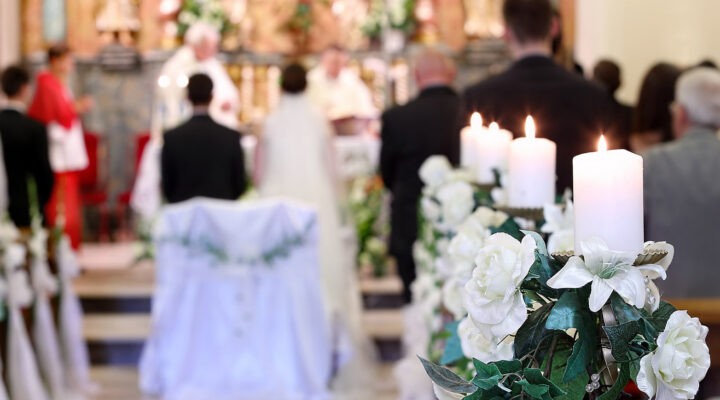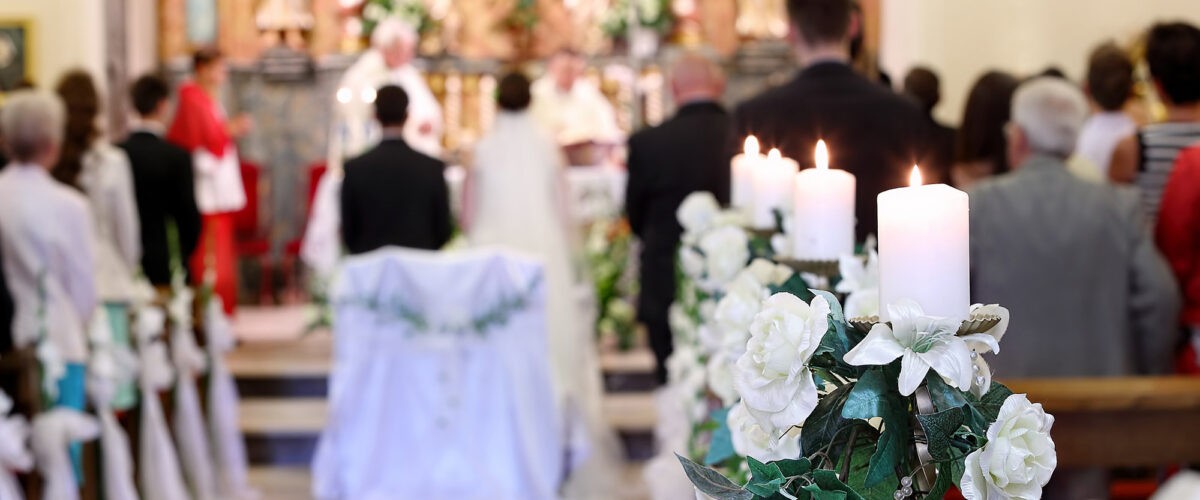First it was about wedding cakes. Now it’s about wedding websites. And the United States Supreme Court has agreed once again to wade into the troubled waters of evangelical Christian business owners refusing to serve same-sex couples.
Although same-sex marriage was legalized nationwide in 2015, multiple court challenges have arisen since then — not to the legalization itself, but to whether public businesses must serve all wedding customers equally.
The most notable of such cases is Masterpiece Cakeshop v. Colorado Civil Rights Commission, which was settled by the Supreme Court in 2018. Except the most urgent questions of this case weren’t actually settled. The court issued a narrow ruling mainly about process that did little to answer future questions about the limitations of free speech and the rights of all customers to be served.
She filed a complaint with the Colorado Civil Rights Commission preemptively, saying its anti-discrimination policy prevents her from expanding her business to include weddings.
In the earlier case, a Colorado baker claimed discrimination by the Colorado Civil Rights Commission because of a state law that prohibits discrimination against LGBTQ persons and same-sex couples. The baker did not want to serve a same-sex couple who sought to purchase a custom cake for their wedding. The baker said same-sex marriage is against his religious beliefs.
The state law is relevant because there are no national laws preventing discrimination based on sexual orientation other than broad interpretations of the First Amendment. This is why LGBTQ advocates have been pushing the Equality Act in Congress, a bill that has passed the House of Representatives but has stalled in the Senate due to its arcane rules requiring a 60-vote majority to pass legislation in the 100-seat assembly. The Equality Act also has faced stiff opposition from conservative Christians.

Lorie Smith
The new case, 303 Creative v. Elenis, also dates to 2016 but involves a different part of the wedding industry, this time a woman who designs customer websites. While the plaintiff, Lorie Smith, like the earlier cakeshop owner, sees herself as an artist there are notable differences between the cases.
In the new case, no same-sex couple seeking a wedding website has asked for Smith’s services; in fact, she has yet to publicize wedding services as an expansion of her website design business. Instead, she filed a complaint with the Colorado Civil Rights Commission preemptively, saying its anti-discrimination policy prevents her from expanding her business to include weddings.
And in another twist, Smith claims she gladly serves the LGBTQ community for her existing website design business; she just doesn’t want to be party to any same-sex weddings.
Her brief with the Supreme Court claims: “Colorado’s Anti-Discrimination Act requires her to create websites celebrating same-sex marriage and bans her explanatory statement — even though Colorado officials stipulate that she works with anyone, regardless of sexual orientation.”
The brief further claims that “Lorie seeks only to speak ‘in a manner consistent with (her) religious beliefs; (she) does not seek to impose those beliefs on anyone else.”
In its brief to the court, the Colorado Civil Rights Commission disputes most of Smith’s claims about the case as either misrepresented or irrelevant. For starters, the brief says, Smith has no standing before the court because she has offered no product for sale, has no customers, has not created a product and has shown no credible threat of enforcement of the law against her. In other words, she has launched a preemptive strike in an effort to challenge state law.
Further, the state contends, the anti-discrimination law is religiously neutral, meaning it does not favor one religion over another, and is generally applicable, therefore constitutional.
The state contends the anti-discrimination law is religiously neutral, meaning it does not favor one religion over another, and is generally applicable, therefore constitutional.
And third, the state says, Smith appears to be mounting yet another challenge to a controversial 1990 Supreme Court case called Employment Division v. Smith, but this is the wrong case to do that. A few of the Supreme Court’s most conservative justices have indicated they want to revisit the Smith case.
For now, the high court has agreed to address only one specific question from the wedding website case: “Whether applying a public-accommodation law to compel an artist to speak or stay silent violates the Free Speech Clause of the First Amendment.”
The case will not be heard until next term, which will begin in October. By that point, Justice Stephen Breyer will have retired from the court and — in theory — have been replaced by a yet-to-be-announced nominee of President Joe Biden. Assuming that happens and that no other changes occur in the composition of the court, the liberal/conservative split should remain the same as now, although on First Amendment cases, justices often surprise court observers.
Smith, the website designer, is represented by Alliance Defending Freedom, an anti-gay conservative Christian organization focused on free expression of religion cases. The firm also represented Southern Baptist Theological Seminary and Asbury Seminary in a claim against the Biden administration’s vaccine mandate. The firm also represented Jack Phillips, the Colorado baker.
Related articles:
Does landmark religious freedom legislation need a fix or is it fine as is?
Equality Act stirs passions about the definition of religious liberty and RFRA’s role
Supreme Court hands partial win to Christian baker who refused gay wedding request


